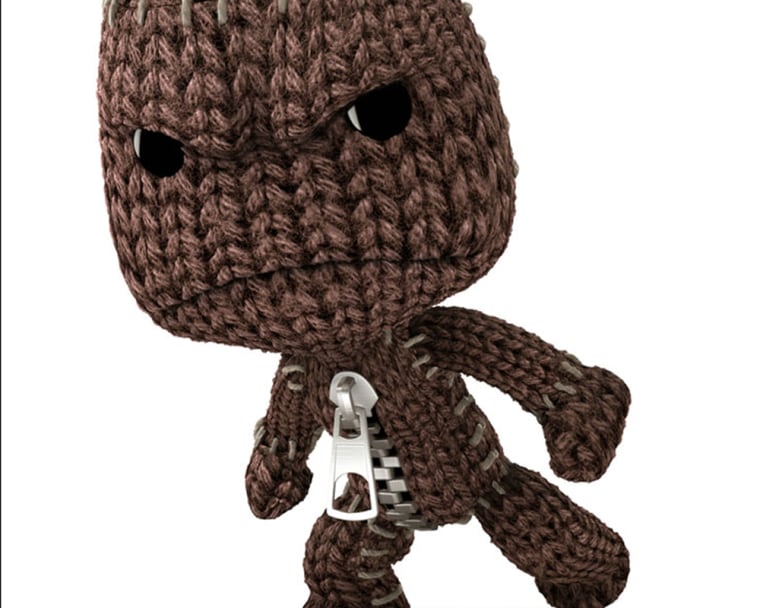Give a gamer the right tools, and he’ll create an homage to “Super Mario Bros.”
In Activision Blizzard’s new “Guitar Hero World Tour,” players have used the new music-creation capabilities to riff on tunes from “The Legend of Zelda,” Pokemon” and yup, you guessed it, “Super Mario Bros.” And just as quickly, these songs were removed from GHTunes, the game’s online sharing site.
In Sony’s “LittleBigPlanet,” gamers made and uploaded levels that paid tribute to “Sonic the Hedgehog,” “Grand Theft Auto,” and, yes, “Super Mario Bros.” And in many cases, those levels were removed by moderators — often without warning.
Gamers in these nascent communities were furious.
“There’s really nothing we can do, except not create anymore levels on this game or just take it back in general and get our money back,” posted Josh1122 on the “LittleBigPlanet” forums. “I don't want to (it’s an awesome game) but what's the use of having a game where you CANT even create a level using the game’s OWN items without being moderated?”
Indeed, the two companies behind these games have touted the user-generated stuff as major selling points. In an interview with msnbc.com, “Guitar Hero” founders Kai and Charles Huang called out their music-creation tools as a key differentiator between it and rival “Rock Band 2.”
“With Guitar Hero Tunes, you can download an infinite amount of music, so there’s really an unlimited amount of time you can play this game,” said Kai Huang.
So, what gives? Why are developers building tools for gamers to create content — content, by the way, that sells their games, adds potentially unlimited shelf life to the games and helps build a vibrant community around the games — and then Big Brothering all the cool stuff right off the servers?
Both Activision and Sony are trying to play down the brouhaha. Activision e-mailed me a statement that was essentially a retread of its online terms of use.
“As we’ve stated previously, only original/new user generated content should be posted to GHTunes,” they wrote. “If we receive a complaint from a copyright owner or otherwise learn a song is a copy of an existing copyrighted song, we will be removing it from GHTunes. A player involved in repeated instances of such postings can lose his/her ability to post songs to GHTunes.”
It’s true, folks. The terms of use states that your submissions must be “entirely original to you.” Which means, in essence, no butt-rock rendition of “Pokemon,” unless you’ve “obtained permission or a proper license.”
So there you have it, clear as day. But … really. How lame. I don’t have much interest in downloading some wanna-be maestro’s take on speed metal. But a speed-metal version of the “Metroid” theme? Sign me up.
Sony seems concerned about the potential chilling effect their policies might have on user creativity. In an e-mailed statement, they told me that they knew there was a problem with levels being yanked from "LittleBigPlanet" — a game I reviewed and loved, incidentally — and that they were working to “resolve this issue.” In the meantime, they hope players will keep making cool levels and sharing them with the community.
On Three Speech, an unofficial PlayStation blog, the company took a harder line, asking users to respect other’s intellectual property rights, including images, brands or logos that “you’re not entitled to use.”
What’s interesting, though, is that many of the user-created levels in "LittleBigPlanet" that were pulled contained “brands and images” from competing developers, such as Nintendo. Levels based on “Final Fantasy” and “Metal Gear,” (both Sony-exclusive franchises) seem to be untouched.
So, why is it such a problem to create derivative versions of other people’s work? For instance, why don’t the Righteous Brothers sue every lounge band that covers “You’ve Lost That Lovin’ Feeling?”
The one, big, legal technical difference, says media scholar Siva Vaidhyanathan, is that to cover a song live, you are taking advantage of a compulsory licensing system that Congress set up to encourage people to play covers in bars and wedding halls.
But if you create a song or a level based on another game and publish it on an online service? Well, you’re running smack up against the Digital Millennium Copyright Act, passed by Congress in 1998. Back then, Internet service providers were more worried about digital piracy of movies and music than user-generated content based on an old Nintendo game.
“Congress never thought that this phenomenon would happen. In 1998, no one ever predicted ‘Guitar Hero,’” says Vaidhyanathan.
And the law contains, he says, very little complexity or nuance. Copyright owners need only send an official letter to the service provider to say their rights are being infringed, and the service provider has to remove it, no questions asked.
Activision Blizzard’s statement seems to indicate that they may have received some sort of complaint, but Sony would not confirm if they had or hadn’t. Perhaps the company was acting preemptively, to fend off even the specter of legal action.
And right now, the law is stacked against players. Both Sony and Activision state in their terms of use that they own the content players create once it’s posted to their service. Players can appeal the removal of their creations — the law affords that process — but the hosting services (Sony and Activision) would have to entertain the appeal.
Until the law is rewritten to include user-generated content, the companies are not to blame, says Vaidhyanathan. It’s a drag for players, certainly, to put time and energy into making something for the community — only to see it yanked. It’s also a drag for those of us who loved playing the “Sonic the Hedgehog” level in “LittleBigPlanet.”
“This is the sort of practice that the law affords no space for,” says Vaidhyanathan. “That doesn’t mean there’s not a solution, it’s just going to take a bunch of lawyers a bunch of years to actually figure out whether this is worth pursuing.”
